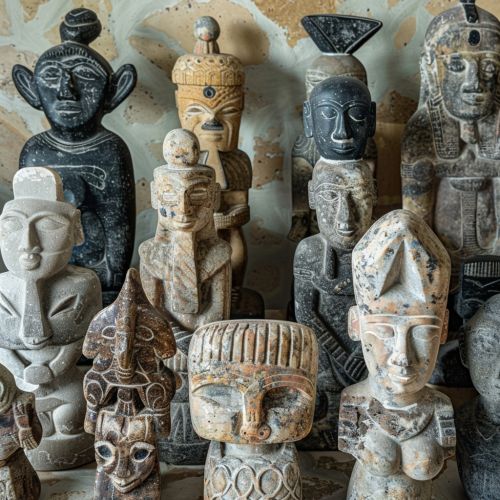Shirk (Islam)
Overview
Shirk in Islamic theology refers to the sin of practicing idolatry or polytheism, i.e., the deification or worship of anyone or anything other than the singular God, Allah. It is the vice that is opposed to the virtue of Tawhid (monotheism). Those who practice shirk are termed mushrikun. Shirk is considered the gravest sin in Islam that Allah may not forgive. However, if a person repents sincerely and asks Allah for forgiveness, Allah will forgive.
Etymology and Definitions
The term shirk comes from the Arabic root "Sharaka," which means to share. In the context of the Islamic faith, it refers to assigning partners to Allah, acknowledging other gods apart from Allah, or attributing divine attributes to other than Allah. The Quran refers to people who commit shirk as mushrikun.
Types of Shirk
Islamic scholars have categorized Shirk into two types: Shirk-al-Akbar (Major Shirk) and Shirk-al-Asghar (Minor Shirk).
Shirk-al-Akbar (Major Shirk)
Shirk-al-Akbar, or major shirk, refers to overt forms of idolatry. This includes the worship of idols, heavenly bodies, spirits, or any created beings. It also includes attributing divine attributes to any other than Allah, or believing that there is a partner with Allah in His Divinity.


Shirk-al-Asghar (Minor Shirk)
Shirk-al-Asghar, or minor shirk, refers to covert forms of idolatry. This includes anything that may lead to major shirk, or which is described in the texts as being shirk, but does not reach the extent of being major shirk. This includes showing off in acts of worship, swearing by other than Allah, and so on.
Shirk in the Quran
The Quran, the holy book of Islam, strongly condemns shirk. It is stated in the Quran that Allah will forgive any sin except for committing shirk.
The Quran contains numerous verses warning against shirk and its severe punishment. For instance, in Surah An-Nisa (4:48), it is stated: "Indeed, Allah does not forgive association with Him, but He forgives what is less than that for whom He wills."
Shirk in Hadith
The Hadith, the sayings and actions of Prophet Muhammad, also contain numerous references to shirk. The Prophet warned against both major and minor shirk and urged his followers to avoid them.
Consequences of Shirk
The consequences of shirk are severe in both this world and the hereafter. In this world, it leads to a life filled with stress, as the individual relies on multiple gods, each with different wills. In the hereafter, the punishment for shirk is eternal hellfire, as stated in the Quran.
Avoiding Shirk
To avoid shirk, one must have a correct understanding of Tawhid, the oneness of Allah. This includes recognizing Allah as the only Creator, Sustainer, and Controller of the universe. One must also avoid any action that may lead to shirk, such as showing off in acts of worship or swearing by other than Allah.
